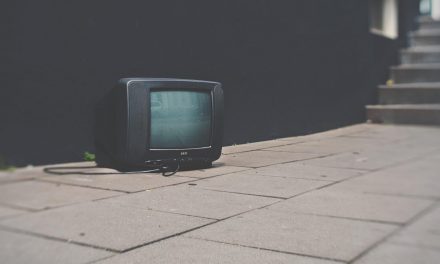Legitimacy justifies the acts and authority of social groups and organisations and makes them acceptable to other social members. As a global health crisis that sweeps the world, the Covid-19 pandemic has provoked a crisis of legitimacy that social actors and institutions face over their responses to or roles in the pandemic. Meanwhile, however, the pandemic may also open up opportunities for them to gain legitimacy. Naturally, social actors and institutions would endeavour to retain or gain legitimacy through many means, of which the media – including the news media and the Internet – is one of the most important instruments. This unprecedented scenario caused by the Covid-19 crisis thus raises many new (and old) questions for media and communication studies to address.
These questions concern, inter alia, the measures taken and the use of the media by governments, states, international organisations, science, and journalists to address the impact of the pandemic on their legitimacy; the changes of legitimacy-related social norms in the media, media discourses, and public perceptions and trust; and whether and to what extent the Covid-19 crisis enhances or endangers the legitimacy of presence and actions of diasporas in host countries and how these groups use the media to respond to this situation. Given China’s role in this pandemic, evidence from Chinese contexts – including Chinese societies and Chinese overseas communities – can provide valuable answers to these questions and a profound insight into the role of media and communication in constructing and contesting legitimacy in crisis situations, of which the Covid-19 pandemic is the latest example.
China is embroiled in disputes with other countries, in particular, the United States (USA) and Australia, over the virus origin and handling. The legitimacy of the World Health Organisation (WHO), which is accused of defending China, is at risk. China’s success and the struggles of the West, in particular, the US, the UK and Europe, in containing the virus seem to suggest the supremacy of Socialism with Chinese characteristics over Western Capitalism. The suspicion of the role of Chinese scientists in the pandemic origin potentially triggers the public’s fear of Dr. Frankenstein, casting doubts over the legitimacy of science. The plague of “fake news”, along with China’s propaganda framework, hits a blow to the legitimacy of the news media in China. The pandemic has also (re)raised long-lasting political issues surrounding Taiwan and Hong Kong. In the context of coronavirus, an increase in racial and ethnic tensions in countries like the US and the growing tensions between China and the West influence the legitimacy of presence and actions of Chinese overseas communities and their capacity to engage with local people in host countries where they settle. In the face of these challenges, how would related social actors and institutions use the media to gain or defend their legitimacy?
In light of the above, the Special Issue of the Chinese Journal of Communication is inviting the submission of papers. Possible areas of interest include, but are not limited to:
- How do social actors and institutions, such as governments, states, science, and journalists in Chinese societies like mainland China, Singapore, Hong Kong and Taiwan, and international organisations like the WHO, use the media to handle the impact of the Covid-19 pandemic on their legitimacy?
- Are there any changes in social norms in the media, media discourses, and public perceptions about the legitimacy of Chinese social actors and institution, such as the state, the news media and science, since the Covid-19 crisis? If so, how and to what extent?
- Is the legitimacy of social systems, such as Capitalism and Socialism with Chinese characteristics, constructed and contested through the media in the Covid-19 crisis? If so, how and to what extent?
- What relationship is there between states and science? Do states in Chinese societies engage in a contest with science for legitimacy in the Covid-19 crisis? Or do states and science collaborate to boost each other’s legitimacy? In either case, how and to what extent, and what role does the media play in the process?
- How do Chinese overseas communities use the media to defend their legitimacy of presence – for example, as national groups, individual residents, political actors, professionals – and actions in host countries in the Covid-19 crisis?
The submission can also be transnational, comparative studies with part of the focus on Chinese contexts.
Submission Instructions
The submission deadline for all manuscripts is 31 January 2021. All submitted manuscripts are subject to a rigorous, blind peer-review process. All accepted manuscripts will be published online first. The planned printed publication date is an issue of CJC in 2022.
Submissions should conform to the editorial guidelines of the Chinese Journal of Communication found at http://www.informaworld.com/cjoc under “Instructions for Authors.” Papers for consideration in this special issue should be submitted online http://mc.manuscriptcentral.com/rcjc and should indicate they are intended for inclusion in the special issue. For inquires, contact Dr. Jingrong Tong at j.tong@sheffield.ac.uk or Prof. Francis Lee at francis_lee@cuhk.edu.hk.
Further info: https://think.taylorandfrancis.com/special_issues/confronting-covid-19/





